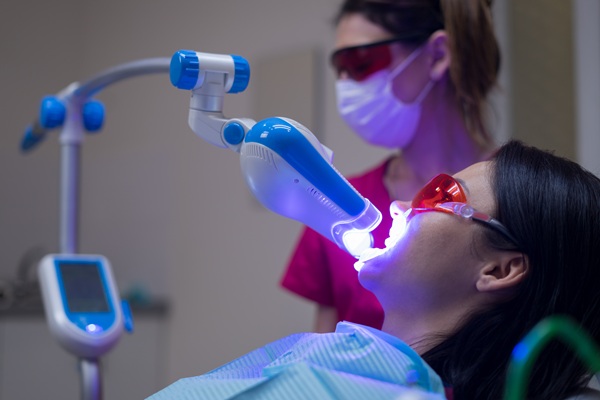How a Root Canal Can Stop Tooth Decay to Save Your Tooth

A root canal is required for patients who have infected tooth pulp or have suffered severe enamel erosion. By fully understanding what a root canal is and how it works to stop tooth decay, you can determine if a root canal treatment may be an option for your oral care needs.
Root canal and tooth decay
When a tooth becomes severely decayed, the risk of tooth sensitivity, developing an oral infection or tooth loss is much higher. The following is everything to know about how a root canal can save your tooth from falling out and how it can repair the damage caused by tooth decay.
How a root canal works
The first step in a root canal procedure is to conduct a thorough examination of the affected tooth, which includes x-rays to gain an understanding of the extent of the tooth decay. After examination, a date and time can be scheduled for the procedure. On the day of the root canal, the dentist is likely to use a local anesthetic to numb the affected tooth and ensure the patient does not feel any pain. A small hole is drilled into the affected tooth and the infected pulp and bacteria are removed. The decayed portion of the tooth is then filled with an artificial substance and the tooth is sealed.
Benefits of a root canal
There are many benefits to a root canal. Perhaps most notably, any discomforting symptoms the patient experienced as a result of the oral infection or tooth decay is likely to go away, including any tooth sensitivity that existed. If the tooth is cosmetically displeasing, then a crown may be applied on the tooth to restore the function and appearance of the tooth, which allows patients to have an easier time eating and speaking and may feel more confident while at work or in social situations. Perhaps most importantly, the patient is able to keep their natural tooth, which may not be the case if treatment for tooth decay is neglected.
When to consider a root canal
A minor case of tooth decay may be able to be treated through a dental filling or another form of less-invasive restoration, but a more serious instance of tooth decay that leads to an oral infection or carries the potential of causing an oral infection may need a root canal to effectively treat the decay and save the tooth. If a patient experiences severe tooth decay that leads to increased tooth sensitivity, significant swelling of the area surrounding the tooth or a hole in their tooth then they should visit the dentist for treatment.
Talk to a dentist about root canal treatment
While a root canal can seem intimidating, it is typically much less invasive than most patients anticipate, and it is almost always successful. No one should have to live with tooth sensitivity or imperfections in their smile caused by tooth decay, and a root canal treatment can be a great way to repair damage and restore the health, function and appearance of a severely decayed tooth.
Request an appointment here: https://www.emersondental.com or call Emerson Dental Associates at (201) 620-9998 for an appointment in our Emerson office.
Check out what others are saying about our services on Yelp: Read our Yelp reviews.
Recent Posts
Laser dentistry is a modern practice used for a number of dental procedures, ranging from root canals to oral cancer screenings. One of the most common laser dentistry procedures is gum reshaping, which has grown in popularity for both cosmetic and restorative purposes. When gum reshaping is chosen for cosmetic purposes, patients are typically hoping…
Many parents often forget the need to get a kid friendly dentist when choosing a dentist for their children. A kid friendly dentist offers additional benefits that are not available from a regular dentist's office. Some might also get confused when they encounter pediatric dentists and wonder if there is any difference. Pediatric dentists also…
There are benefits to choosing an experienced implant dentist over one who is relatively new in the profession. Dental implants require a more complex process that involves several steps, and choosing the right implant dentist may help make the process more convenient, less invasive, and safer.It is helpful to learn more about dental implants, how…
Are you considering implant supported dentures? This hybrid tooth replacement option is one that provides patients with stability and a natural-looking smile. Implant supported dentures can be used to replace teeth on the upper or lower arch. In the event that the lower arch of teeth needs to be replaced, patients are often curious about…


